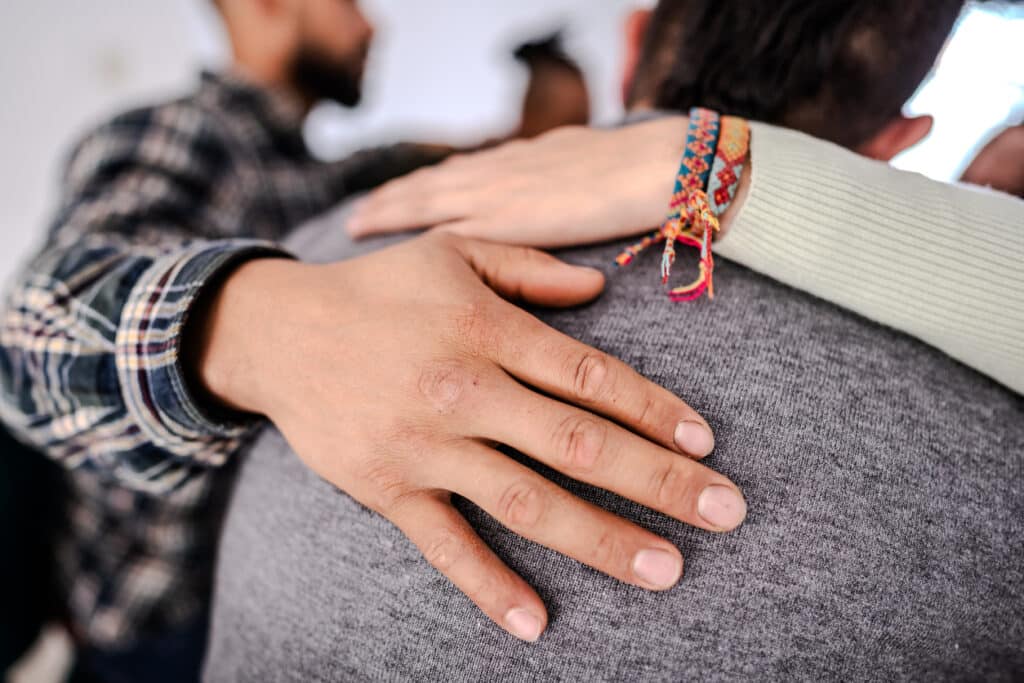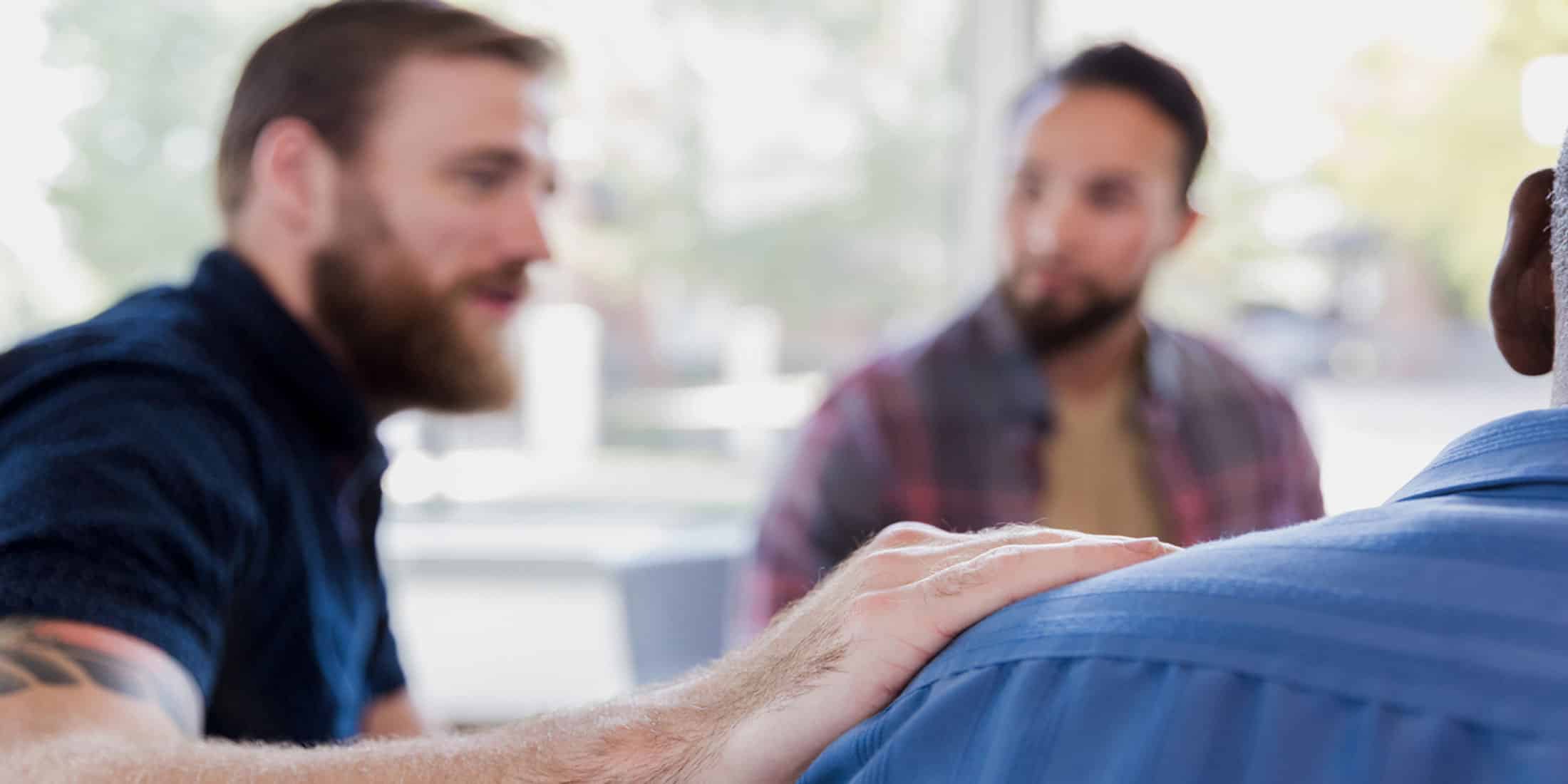At our addiction treatment center, we believe that group therapy is one of the most valuable tools in the recovery process. While individual therapy can help address personal issues, group therapy creates a unique environment where individuals can connect with others who understand their struggles.
Recovery can often feel isolating, but group therapy offers a sense of community and shared experience that can make all the difference. In this post, we’ll explore how group therapy helps those in recovery build strong support networks, gain new insights, and develop the skills needed to stay sober long-term.

Benefits of Group Therapy
Group therapy can be one of the most transformative aspects of addiction recovery. It offers a unique environment where people can connect, learn, and grow, all while sharing the journey with others who understand the challenges.
Here’s a deeper look at how group therapy helps and why it’s so valuable in the recovery process.
1. Confirmation That You’re Not Alone
One of the first things group therapy offers is the reassurance that you’re not alone. It’s common to feel isolated during recovery, as if you’re the only one struggling with these feelings or urges.
Hearing others share their experiences can help normalize your own feelings and break down the walls of isolation. This connection is powerful because it reminds you that others are going through similar struggles.
You begin to realize that your thoughts and experiences are not unique or shameful, and that others can relate to the battles you’re fighting. Knowing you’re not alone in your journey can provide comfort and a sense of belonging, helping you feel less overwhelmed.
2. A Boost in Social Skills
Addiction often leads to social withdrawal and makes it difficult to interact in healthy ways. Group therapy provides a safe, structured space to rebuild social skills. You get the chance to practice speaking openly, listening actively, and engaging in supportive conversations.
This is more than just talking about problems; it’s about developing trust and communication skills that will help you navigate the world outside of therapy. As you interact with the group, you learn how to respond to others empathetically, offer support, and express your own feelings without judgment.
These skills are vital for reconnecting with loved ones and rebuilding relationships. The more you practice, the more confident and comfortable you’ll become in social settings, which will ultimately help you stay connected and avoid isolation.
3. Finding Your Own Voice
Addiction often silences people, making them feel like their voice or needs don’t matter. In group therapy, you’re encouraged to speak up, share your thoughts, and express your emotions.
This process of self-expression helps you rebuild your confidence and clarity about who you are, what you want, and what you need from others. By finding your voice, you learn how to advocate for yourself and assert your needs, which is essential in recovery.
It empowers you to set boundaries, speak honestly in relationships, and make decisions that align with your personal values. When you realize your words matter and that others will listen, it reinforces your sense of agency and control over your life
4. Gaining Positive Perspective
Recovery is rarely a straight path, and group therapy helps shift your perspective on setbacks and challenges. Hearing how others have navigated their own struggles can help you see your own challenges from a different angle.
Group members share their victories and defeats, which can give you a clearer picture of what recovery looks like over time, showing that progress isn’t always linear. This positive perspective is important because it helps you understand that setbacks don’t mean failure.
Instead, they’re just part of the process, and you can learn from them to keep moving forward. By hearing from others who have been where you are, you’re able to reframe your own experiences in a way that helps you stay hopeful and motivated.
5. Learning from Your Peers
Group therapy provides a space where you can learn from the experiences of others who are on a similar journey. People often share techniques, insights, and strategies that have worked for them, offering practical tools that you can apply to your own recovery.
Whether it’s a new coping mechanism or a helpful piece of advice, each person brings something valuable to the table. By listening to others, you gain new ideas for managing cravings, dealing with triggers, and building healthier habits.
You may hear something that resonates with you or discover a strategy that you hadn’t thought of before. Learning from your peers helps you feel more equipped to handle the ups and downs of recovery, knowing that you have a variety of tools at your disposal.

6. Accountability and Motivation
In group therapy, there’s an inherent system of accountability. You share your goals, struggles, and progress with the group, which creates a supportive but motivating environment.
When you know others are rooting for you and will check in on your progress, it helps you stay committed to your goals. The group setting naturally keeps you engaged, as you’re encouraged to continue making progress and hold yourself accountable.
This motivation can be especially important on days when you’re feeling discouraged or tempted to give up. Having a group that supports and encourages you makes it easier to stay focused and invested in your recovery.
Find Connection and Support in Your Recovery
For more information on group therapy or other therapies, or to start your journey toward health and wholeness, please don’t hesitate to reach out to our team today at The Meadows.
Group Therapy FAQs
How does group therapy differ from individual therapy in addiction recovery?
Group therapy and individual therapy both play important roles in addiction recovery, but they serve different purposes. Individual therapy is more focused on personal issues, helping a person explore their thoughts, feelings, and behaviors in-depth.
Group therapy, on the other hand, is about connecting with others who share similar struggles. It offers a sense of community and shared experience, where participants can support each other, learn from each other’s experiences, and hold each other accountable.
Is group therapy effective for everyone in addiction recovery?
While group therapy is beneficial for many, it may not be for everyone. Some people may feel uncomfortable sharing in a group setting or may not be ready to open up to others. It’s important to assess whether group therapy aligns with your comfort level and recovery goals.
For those who are ready, group therapy can provide immense value through connection, accountability, and shared learning.
How do I know if I’m ready to join a group therapy session?
You might be ready for group therapy if you’re feeling stable in your recovery and are looking to connect with others who share similar experiences. It’s helpful if you’re open to vulnerability and ready to receive feedback from others.
If you’re comfortable with the idea of learning from peers and being an active participant, that’s a good sign you’re ready. However, if you’re not comfortable with sharing just yet, it might be better to focus on individual therapy first.
What happens if I don’t feel comfortable sharing in group?
It’s completely normal to feel nervous or hesitant about sharing in a group setting, especially early on. Most group therapy sessions are designed to be supportive, and there’s no pressure to speak up until you’re ready.
If you don’t feel comfortable, it’s okay to listen at first and gradually ease into participation. The facilitator is there to guide the process and help create a safe space for everyone.
Can group therapy help with family relationships during recovery?
Yes, group therapy can indirectly support the healing of family relationships. While the focus is on individual recovery, the skills you develop in group therapy—such as communication, empathy, and boundary-setting—can help you repair and rebuild trust with loved ones.
Some programs even offer family therapy or sessions that focus specifically on guidance for you and your family to improve your shared dynamics during recovery.

